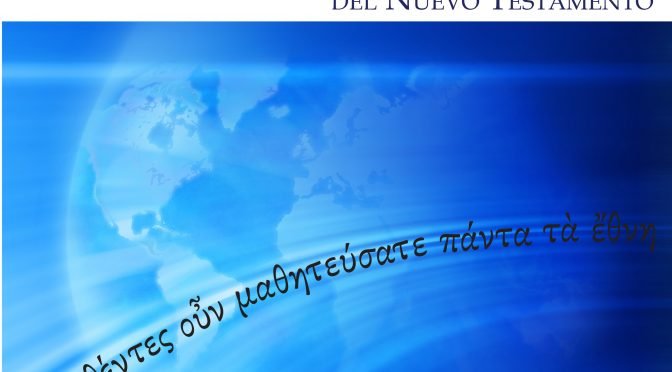[Friday, September 15]
6:20 AM The study of Greek has changed my life in such acute ways I can no longer envision my life without Greek in it. And I don’t think I’m weird in this respect. Some of you are the same way. Before I studied Greek I had no idea how languages worked. Then I joined the fray. I’ve had so many great teachers. One of them, a certain Colin McDougall, exposed me to morphology when I was in seminary. He was the only Greek prof at Talbot, as I recall, who paid any attention to linguistics. His discussions changed my life for the better. My book Linguistics for Students of New Testament Greek is all his fault, I guess you could say. I’ve never done this publicly before so here goes: Thank you, brother McDougall, for being a true advocate of language study. Which brings me back to the subject of morphology. Which of the following renderings of James 1:17 do you like the best?
Whatever is good and perfect is a gift coming down to us from God our Father (NLT)
Every good and perfect gift is from above (NIV)
Every good thing given and every perfect gift is from above (NASB)
Every good gift and every perfect gift is from above (ESV)
Every generous act of giving and every perfect gift is from above (ISV)
As I write this, my Greek 3 students are reading my chapter on morphology in Linguistics. They’re learning the difference between a –sis suffix and a –ma suffix, for example. Notice what James writes (James 1:17):
Πᾶσα δόσις ἀγαθὴ καὶ πᾶν δώρημα τέλειον ἄνωθέν ἐστιν
This verse has earned a clear spot on my Morphology Greatest Hits List with its interesting use of both of these suffixes within the space of 4 words. The first word for “gift” has the –sis suffix — a process morpheme — and the second word for “gift” has the result morpheme –ma. Let’s see how this plays out. The NIV thinks the repetition of “gift” is redundant — hence “Every good and perfect gift.” The ESV translates both of the “gift” words but without any distinction in meaning. The ISV deviates from the norm and tries to tackle the issue of morphology — “Every generous act of giving and every perfect gift.” I’m not saying this is necessarily correct. But why would James use two different words for gift unless he wanted to stress different nuances? Again, it could be simply for stylistic variation without any change in meaning. But it could also be because he wanted to emphasize that both the gifts we give to others and the generous impulse that led us to give those gifts come from God. There’s a nice flavor here, wouldn’t you admit? Admittedly, I’m a bit biased toward the ISV’s rendering. In addition, I have an inexplicable, boundless love for all things Greek. But the best thing about Greek is that it helps us to ask questions. Hear this (again): Greek isn’t the Abracadabra of exegesis. We’re so conditioned to hearing “The word in the Greek means …” from our pulpits that we’ve forgotten that meaning is a very muddy concept. Calvin referred to “the God who lisps.” He didn’t mean that the Bible contains mistakes. He meant that when God decided to speak to us, He decided to use ordinary human languages, with all of their susceptibility to ambiguity. I’ve discovered I can study a passage in Greek for days and still not really understand exactly what it’s saying. My goal becomes: This matters, this doesn’t. This counts, this doesn’t. I’m so grateful for the work of Bible translators. Without them most of us would be in the dark. I’m sure of it. But no two translators see the text in exactly the same way. Hesitantly, I offer to you the ISV’s rendering as one possible alternative to what you’re used to reading. Clearly I believe my job as a Greek prof is more than teaching paradigms. Are there ways a knowledge of Greek can enhance our study of God’s word? I think maybe there is. And James 1:17 might just be one example.
I have no expectation that this rather whimsical post this morning will radically alter anybody’s life. Aside from simply loving Greek, I think the inspirations underlying my teaching have changed through the years. The biggest driving force has been to help students think for themselves. I feel a real sense of urgency to show them ways that Greek can make a real difference in their lives, even in such areas as the way they think about giving. If you want to study Greek, just do it. As with running, it’s not as hard as you think. You just need to modify your schedule a little bit and be sensible. Needless to say, once you’ve crossed over to the dark side, you’ll never be the same person again.
(From Dave Black Online. Used by permission.)
